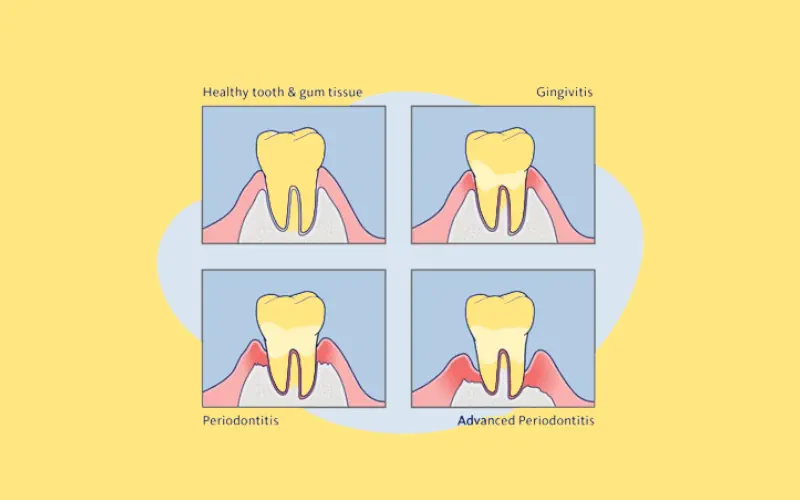Are you ready to delve into the world of oral health and discover some shocking truths? Brace yourself as we uncover the harsh reality of periodontal disease in India, where gum issues are far too common. But hold on tight because it turns out that Australia is giving them stiff competition when it comes to dental woes. Let’s explore how these countries are battling against the silent epidemic of gum disease and what can be done to improve oral hygiene for all.
Table of Contents
ToggleIndian Dentists Know India Has Too Much Periodontal Disease
Indian dentists are on the front lines, witnessing firsthand the alarming prevalence of periodontal disease in their country. Despite advancements in dental care, the issue persists, affecting a large portion of the population. From major cities to remote villages, gum problems plague individuals of all ages and backgrounds.
These dedicated professionals work tirelessly to educate and treat patients suffering from this oral health crisis. Through routine check-ups, cleanings, and specialized treatments, they strive to combat periodontitis before it escalates into more serious complications.
Awareness campaigns and community outreach programs play a crucial role in spreading knowledge about proper oral hygiene practices. By empowering individuals with information on prevention and early detection, Indian dentists aim to reduce the burden of gum disease nationwide.
It is clear that addressing periodontal disease requires a collective effort involving both healthcare providers and the general public. Together, we can strive towards healthier smiles for all Indians.
Gum Disease is Rife in India & The Philippines: But Also Australia
Gum disease is a prevalent issue in countries like India, the Philippines, and Australia. In India, many people struggle with periodontal disease due to factors like poor oral hygiene and lack of access to dental care. The situation is similar in the Philippines, where an alarming 90% of the population faces various dental problems.
Australia also grapples with high rates of gum disease despite being known for its overall healthcare standards. It’s surprising how such developed nations still battle this common oral health concern. The impact of gum disease goes beyond just affecting one’s teeth and gums; it can also lead to serious health complications if left untreated. It’s so bad even in Australia that many Australian dentists blog openly about the poor state of dental health bemoaning how their various governments continue to fail its citizens’ oral health, no matter whether left or right.
Addressing this widespread issue requires a collective effort from individuals, communities, and governments to prioritize oral health education and affordable dental services. Let’s work towards creating healthier smiles across borders!
How Can Periodontitis Have Better Treatments?
Periodontitis, commonly known as gum disease, is a prevalent oral health issue affecting millions worldwide. While traditional treatments like scaling and root planing are effective in managing the condition, advancements in dental technology offer new hope for better outcomes.
In recent years, innovations such as laser therapy have shown promising results in treating periodontitis by targeting bacteria deep within the gums without causing damage to surrounding tissues. This minimally invasive approach not only reduces discomfort for patients but also enhances treatment efficiency.
Furthermore, personalized treatment plans tailored to each individual’s specific needs can lead to more successful outcomes in combating periodontal disease. By combining professional interventions with improved at-home oral hygiene practices and regular dental check-ups, patients can take proactive steps towards preventing and managing gum disease effectively.
With ongoing research and development in the field of periodontics, the future looks bright for individuals seeking better treatments for this common yet serious oral health concern.
India & Australia Have The Worst Oral Health Apart From Philippines
It’s no secret that oral health is a significant concern in many countries around the world. Surprisingly, India and Australia find themselves among those with the worst oral health rankings globally, trailing closely behind the Philippines – which because of its terrible smoking rates, with smoking being so destructive to the oral microbiome comes last on almost every dental chart.
In India, issues like periodontal disease and gum disease are alarmingly common, affecting a large percentage of the population. This prevalence highlights a pressing need for improved dental care practices and awareness campaigns to promote better oral hygiene habits.
Similarly, in Australia, despite being known for its high standard of living, oral health remains a major area of concern. The rise in cases of periodontitis underscores the importance of regular dental check-ups and proper oral hygiene routines to prevent these conditions from worsening.
While efforts are being made to address these challenges, there is still much work to be done in both India and Australia to elevate their oral health standards and reduce the burden of periodontal diseases on their populations.
Our Dental Shame: Oral Hygiene in Crisis
It is clear that periodontal disease is a significant issue not only in India but also in countries like Australia and the Philippines. The prevalence of gum disease highlights the urgent need for better oral hygiene practices and increased awareness of the importance of regular dental check-ups.
With improved access to dental care, education on proper oral hygiene techniques, and early detection and treatment of gum disease, we can work towards reducing the burden of periodontal disease in these countries. It’s time to prioritize our oral health and take proactive steps towards preventing and managing gum disease for a healthier future.




